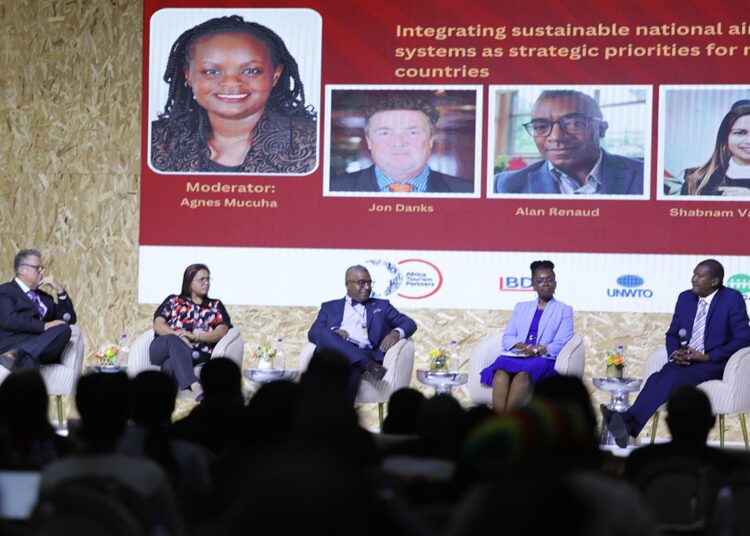Experts in tourism industry in Africa have harps on the need for Public-Private Partnerships (PPP) for the growth and development of Africa’s tourism industry.
They submitted this on Day Two of the 2023 Africa Tourism Leadership Forum (ATLF), held at the Gaborone International Conference Centre (GICC), Gaborone, Botswana, during the inaugural AfCFTA Forum on Tourism, Creatives and Cultural Industries. The day was filled with thought-provoking discussions on the future of African tourism.
Discussing a call to market brand Africa, in an engaging panel discussion, one of the panellists, South Africa’s Minister of Tourism, Patricia de Lille, underscored the need to genuinely market “Brand Africa” and accelerate the revitalisation of tourism post-Covid.
Lille stressed the need for governments to incentivize the private sector and create a platform for interaction between government and businesses.
Another member of the panelists, Director of the Directorate of Trade in Services, Investment, Intellectual Property Rights & Digital Trade (DTIID) at the AfCFTA Secretariat, Emily Mburu-Ndoria, recommended simplification of trade regimes and the need for advocacy, promotion and investment in tourism.
The panelists emphasized the importance of national airlines in the travel experience while discussing the integration of sustainable national airlines, air access, and travel facilitation systems. They also emphasised the national airlines’ critical role in promoting economic growth and the need for ongoing government funding. They also echoed the demand for cooperation and a change in business practices to lower the price of regional flights. The AfCFTA urged classifying regional flights as domestic to avoid pointless fees. The development of digital skills and technology was deemed crucial for the future of African aviation.
The panel explored practical steps for accessing private and development finance for tourism and hospitality infrastructure. PPPs were highlighted as instrumental in fostering collaboration between the private sector and government. The importance of transparency and realistic expectations when seeking funding was emphasised.
Youth and Women Empowerment
This discussion centred on utilising cultural tourism, creative arts, and legacy assets to open up economic opportunities for African women and youth. The panellists emphasised the significance of actively involving young people, giving them chances to develop their capacities, and facilitating their access to financial resources and opportunities within the AfCFTA for entrepreneurship in the arts and culture.
Bidding and Hosting Association Meetings, Conferences, and Exhibitions
Through a futuristic perspective on bidding and hosting association meetings, this part examined destination competitiveness. It emphasised the power of conferences to influence society and the significance of skill and knowledge in achieving success.
Spotlight on Sustainability in Tourism and Hospitality
The significance of green thinking, innovation, and profitability in the sector was emphasised at a session on sustainability. The use of technology, ethical sourcing, and sustainability education were important themes. The message was crystal clear: sustainable practices are essential to long-term financial success and demand creative solutions.
The Next Frontier: Digitalization
The discussion on utilising digitalization tools for the travel and hospitality industries ended the day’s discussion. The panelists emphasized the significance of using African data to guide decisions, emphasizing the idea that “he who controls the data controls the narrative.” Accepting data protection laws and using AI as a tool to improve productivity were also emphasised. A demand was made for African locations to properly utilise basic data systems in order to improve tourism on the continent, in addition to big data.













